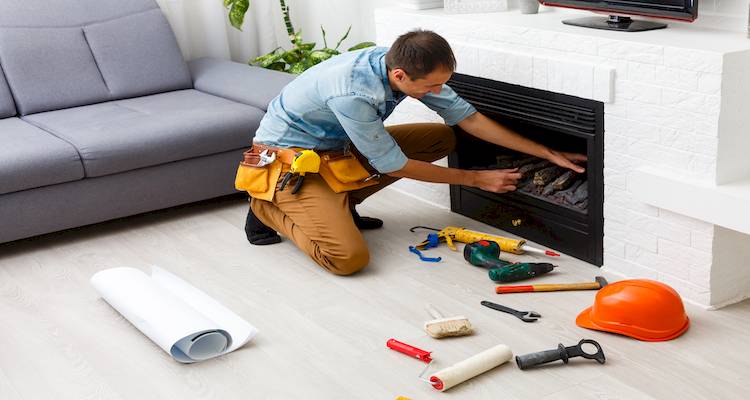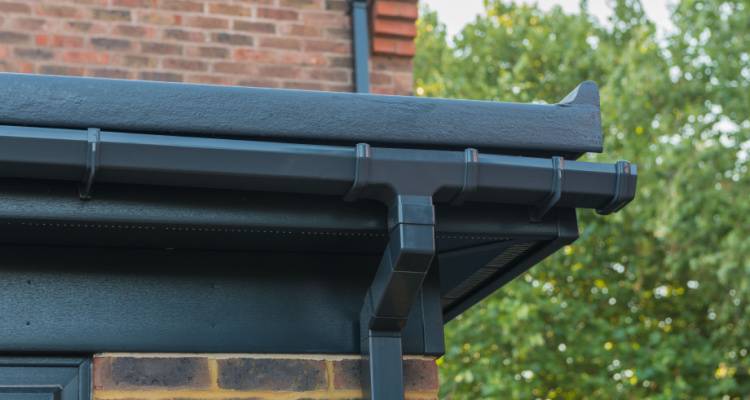LPG Central Heating Cost
- The average cost of installing LPG heating is £4,000.
- It takes around 1 to 2 days to complete LPG central heating installation.
- A complete breakdown of LPG heating installation prices, including combi, heat-only, and system boilers.
- How long it takes to install LPG heating, and a range of jobs you can get done at the same time.
- How to find and hire an LPG heating specialist near you.
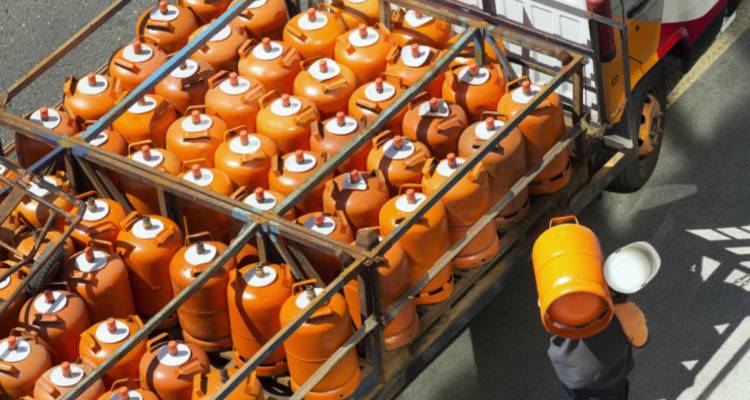
£4,000
Table of Contents
- How Much Does LPG Central Heating Cost?
- Supply Only Costs
- Additional Costs
- Labour Costs and Timescales
- Cost Factors of Installing an LPG Central Heating System
- What's Involved in Installing an LPG Central Heating Unit?
- Building Regulations & Planning Permission For LPG Central Heating Installation
- Types of LPG Central Heating
- Checklist: Hiring Contractors to Install an LPG Central Heating System
- FAQs
How Much Does LPG Central Heating Cost?
The cost of LPG boiler installation when updating your central heating is around £2,500 to £6,100. If you choose a system boiler this will usually cost up to £4,300, whereas a conventional or heat-only boiler will cost around £2,200 to £3,700.
If you're not connected to a mains gas supply, you'll need an alternative fuel. LPG is a popular choice because of its high efficiency and the fact it works with conventional gas heating systems.
The total price can vary between different LPG boilers and the installation costs will depend on the type of gas boiler system you require, as well as your location in the UK. For example homeowners in London can expect to pay more in labour fees than those in the North or other regions.
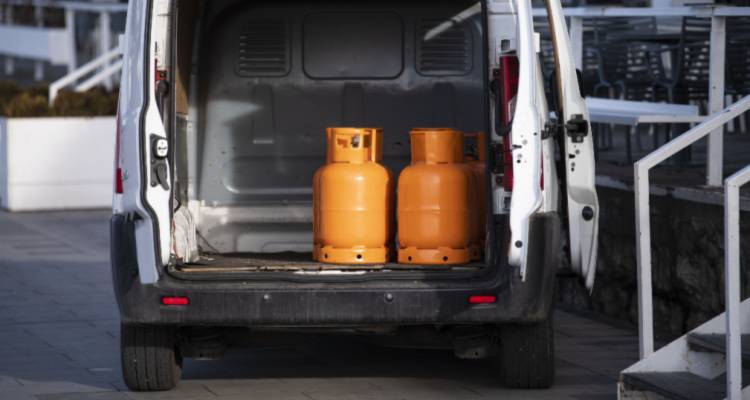
What is LPG heating, and how much does it cost to install?
Most UK homes use mains gas for central heating. Where mains gas isn’t available, a common alternative is LPG (liquefied petroleum gas).
The average cost of installing LPG heating is around £4,000, depending on the boiler type you choose.
When it comes to running the system, LPG costs are generally more expensive than mains gas but tend to be cheaper than electric heating, making it a popular option for homes without a mains gas supply.
Ready for an installation quote?
More than 1 million homeowners across the UK use MyJobQuote to find tradespeople near them every year. Just enter a few project details and get matched with LPG heating engineers near you.
Want to find out more before you start getting quotes? Read on to find out everything you need to know about LPG fuel.
How long does an average LPG cylinder last for in an average semi-detached house?
LPG Central Heating Installation Prices
In the table below, we will go over the various costs that you can expect when installing an LPG boiler:
| Job Description | Average Cost |
|---|---|
| LPG combi boiler | £2,500 - £6,100 |
| LPG heat-only boiler | £2,200 - £3,700 |
| LPG system boiler | £2,300 - £4,300 |
| Underground LPG tank installation | £1,000 - £1,500 |
Supply Only Costs
Suppose you are considering purchasing your boiler yourself rather than sourcing the boiler through your contractors. In that case, you may be wondering about the costs of the boiler alone without the cost of labour included.
There are various types of LPG boilers to choose from. Below, we will go over a breakdown of the different prices that you can expect for an LPG boiler:
| Material Type | Average Cost |
|---|---|
| LPG combi boiler | £900 - £2,600 |
| LPG heat-only boiler | £890 - £1,200 |
| LPG system boiler | £890 - £1,500 |
| LPG conversion kit | £20 - £60 |
| Flue kit | £50 - £280 |
| Flue elbow | £20 - £60 |
| Flue extension | £20 - £125 |
Additional Costs
There are some additional costs that may come up when installing a new LPG fired central heating system. Below is a list of the different things that you may need to budget for with this type of work:
New Radiators
If you are replacing your central heating system, it may make sense to get some new radiators. This is particularly true if you have old radiators that could be updated to modern, energy-efficient models.
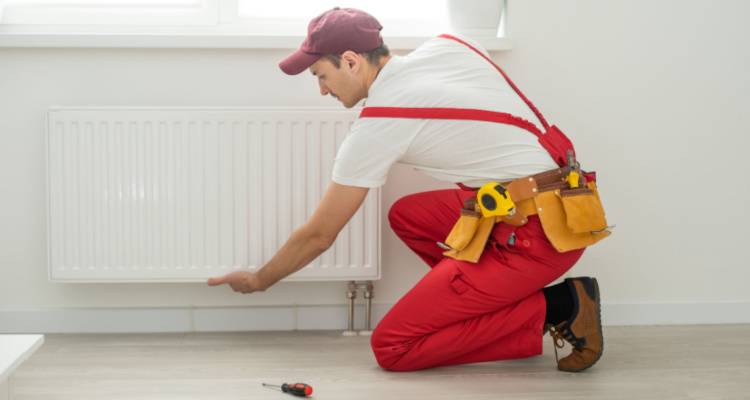
The cost to remove and replace a radiator is usually around £200 per radiator.
Power Flushing
Power flushing your central heating system can help to clean out the system by removing all of the debris and sludge that can build up over time. This can improve the efficiency of your heating system and make it work much better.
The average cost of power flushing your heating system is around £400.
Improve Insulation
To make the most of your new LPG heating installation, you should improve your home's insulation. If your home isn't well-insulated, you'll end up losing a lot of heat, making your heating work harder - and costing you more unnecessarily.
Good options are to improve your underfloor and roof insulation. Floor insulation costs around £800, with the exact price depending on your type of floor and insulation material.
As heat rises, you should make sure your property's roof is sufficiently holding in your home's heat. Roof insulation costs £450 depending on your roof style and insulation material, with fibreglass being the cheapest per m², and spray insulation being the most expensive.
Smart Thermostat
You can automate your heating schedule by installing a smart thermostat, helping to optimise your energy usage and save you money.
Depending on the exact make and model, typical smart thermostat installation costs are around £265.
Smart thermostats can save between 10% to 20% on your annual heating bills, making them a sound investment.
On average, how efficient is an LPG boiler?
Labour Costs and Timescales
You will need to hire a Gas Safe registered engineer to complete this work for you. On average, you can expect installation costs for a gas engineer to be charged at around £150 to £200 per day.
The job will usually take around 1 to 2 days to complete.
However, the timescales from a labour perspective is likely to depend on whether the process of installing a new boiler involves replacing it with like-for-like or with modern LPG boilers that could require additional work. For example, If extra pipework is needed, this could add some additional time:
- Straight swap of an old boiler with a new boiler of the same type may take just 1 day to complete.
- Installation of a completely new style of boiler, may take up to 3 days, depending on the job's complexity.
You may also need to think about the additional time it may take to install your LPG storage tank, as this is where the LPG fuel will be stored.
Some installation companies offer an underground tank installation. This type of installation usually takes around one to two days to complete, although you still need to consider access to an underground tank.
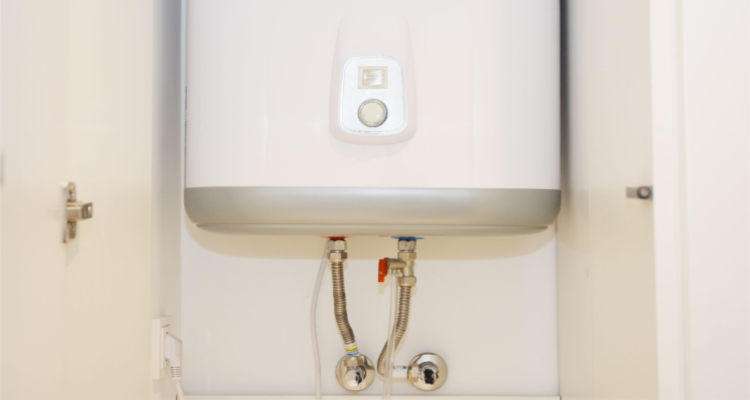
Cost Factors of Installing an LPG Central Heating System
You may need to consider several cost factors when installing an LPG heating system:
- Type of Boiler — The type of boiler you choose affects the overall cost. New central heating costs when purchasing a combi boiler are usually the most expensive, while heat-only boilers tend to be the cheapest.
- Additional Parts — Extra parts may be required for a proper installation:
- Flue kit: around £50 to £280 depending on boiler style
- Flue extensions: around £80 to £125
- Flue bends: around £20 to £60
- Type of Installation — Installing a like-for-like boiler in the same position is easier and cheaper. Moving the boiler to a new location or switching to a different type of boiler can increase labour and materials costs.
- Ease of Access — The more difficult the site is to access, the longer the installation will take, resulting in higher labour fees. Likewise when it comes to the complexity of the property, such as unconventional layouts which may require additional pipework etc.
- Property Location — Labour fees often vary by region. For examples, homes in London typically pay more than those in the North or other parts of the UK. Rural areas may also require significant work to connect to the mains gas supply, which can also impact the final cost.
What's Involved in Installing an LPG Central Heating Unit?
LPG central heating systems require a boiler that is safely plumbed into a property that can accommodate the necessary LPG supply. By UK law an LPG boiler installation and gas central heating can only be worked on by a Gas Safe registered engineer.
As such, this isn't a job to carry out as a DIY project and in order to get the best deal from a professional, it is recommended to request at least three quotes. With MyJobQuote you can find local LPG suppliers who can provide free quotes without any obligation to have the work done.
Below we take a look at the general process for modern lpg boilers that most lpg suppliers will follow when installing your gas central heating:
Before the Job
- Boiler and Flue Assessment — The engineer will check the positioning of your current boiler and flues, then decide whether or not your LPG boiler installation can be kept in the same place. This will also determine if any amends to pipework is required.
- Turning off Gas Supply — When replacing any system with modern LPG boilers it is vital to turn off the gas during the process and if the boiler is being moved, the old gas feed will be capped off.
During the Job
- Boiler Relocation — In the event of a boiler relocation, new gas pipework will be fitted and the new lpg boiler installation connected to your radiators and water supply.
- Conventional Boiler — These are connected to the hot and cold water storage tank and with electrical heating controls for easy operation without needing to access the boiler directly.
- LPG Supply Tank Installation — LPG boilers require a storage tank with liquefied petroleum gas, whereby it is common practice to install as an underground tank in accordance to safety regulations.
After the Job
- Connecting the Tank to the System — Once the storage tank is fitted, it is then linked to the boiler and heating system.
- System Testing — The engineer will complete a full test to ensure your LPG boiler installation and heating and hot water system is working properly.
What costs more, a propane LPG storage unit or a butane LPG storage unit?
Building Regulations & Planning Permission For LPG Central Heating Installation
You won’t usually need to worry about planning permission when you install an LPG tank, as it is classed as a permitted development. However, that is assuming LPG boilers meet the following criteria:
- The storage tank must hold no more than 3,500 litres for permitted development.
- The height should be no more than 2.5 metres if located within 2 metres of a boundary, or 3 metres in height otherwise.
- The storage tank should not cover more than half of the land.
It's also important to note that regardless of the type of central heating, boilers or storage tank, there are additional factors to consider if you live in a listed building or conservation area. In these scenarios, or if your property is within a national park or World Heritage Site, you may still need to apply for planning permission regardless.
Planning permission requests are usually around £200, although this may vary by region. If you're unsure, it's always best to contact your local planning department before starting any work.
Installing LPG boilers and heating must also comply with building regulations, covering health and safety, proper flue installation, ventilation, and pipework. Certified engineers can usually handle this and self-certify, after which you should receive confirmation that the work meets all regulatory standards.
Types of LPG Central Heating
There are several types of LPG heating systems. Below, we will go over the differences between each of these different systems:
Bulk LPG System
Bulk LPG systems can usually hold around 3,500 litres of liquid petroleum gas, and are most common in rural areas or properties that are off-grid.
However, homeowners can also buy bulk LPG systems. The tanks are usually placed somewhere outside their home, most commonly in the garden, either above or below ground.
Bulk LPG systems can be quite beneficial, often with a fixed price that currently works out at around £0.08 to £0.10 per kWh. This means that homeowners with bulk LPG systems won't be affected by fluctuating gas prices.
Pros
- Large storage tank, reducing the frequency of refills.
- Fixed cost per kWh, protects against fluctuating gas prices.
- Ideal for rural or off-grid locations.
- Less risk of running out compared to cylinders.
Cons
- Requires significant outdoor space.
- Installation can be complex, especially for an underground tank.
Supplier Owned LPG System
Many LPG suppliers can provide tank rental services, costing around £60 to £70 for a tank that lies above the ground, and £80 to £120 for an underground tank. This price typically includes a regular refill service.
However, it costs around £1,500 extra for a below-ground installation.
One of the main benefits of this type of system is the fact that you get an automatic filling service included. This means that you don't need to worry about filling up the tank yourself.
Pros
- Automatic refill service included.
- Flexible above-ground and underground tank options.
- Maintenance and service covered by the supplier.
Cons
- Usually requires a supplier contract and ongoing rental charges.
- Underground installation can be more complex.
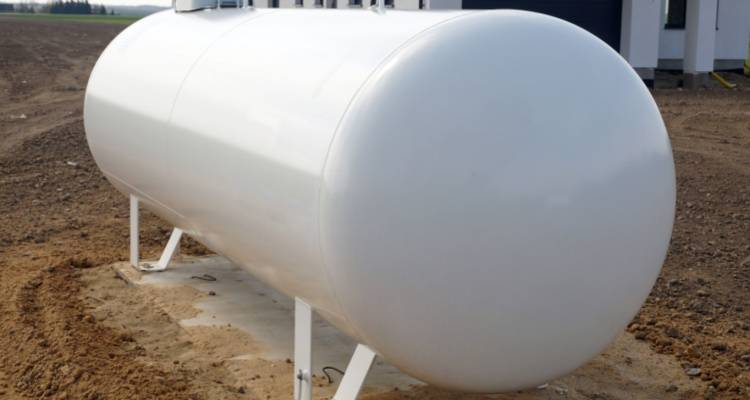
Cylinder LPG System
Many homeowners simply don't have the room for a full LPG tank, which is where an LPG cylinder system can come in handy. These cylinders can hold anything from 5kg to 50kg.
A 47kg cylinder typically costs around £80 to £100, with refills tending to range from around £20 to £45.
Pros
- Compact, ideal for homes with limited space.
- Easy to replace and store multiple cylinders.
- Also suitable for homes without any outdoor space.
Cons
- Smaller capacity requires more frequent refills.
- Less suitable for larger homes with higher heating demands.
Checklist: Hiring Contractors to Install an LPG Central Heating System
You will need to consider several things before hiring someone to install a new LPG central heating system for you. Consider the key points below when looking for the right contractor for the job:
- Are they on the Gas Safety Register? By UK law, only Gas Safe registered engineers are legally allowed to install and work on gas appliances and gas pipework. However, for work directly on the mains gas supply you will need to contact your supplier.
- How many years’ experience does the engineer have fitting LPG heating systems? Look for someone with a solid amount of hands-on experience with LPG installations, including modern LPG boilers.
- Is the engineer experienced in fitting the type of system you are purchasing? Make sure they have experience installing the specific LPG system you plan to buy and ask for recent examples of their work.
- Do they have positive reviews and feedback? Research their online presence and feedback, check for positive reviews and testimonials via their MyJobQuote profile.
- Have you requested more than one quote? As with any professional tradesmen, it's recommended to gather at least three separate quotes so you can compare prices, MyJobQuote can help you find local companies that specialise in LPG boilers.
- Have you received an itemised quote? Request a clear breakdown to ensure you are paying a good price for each element of the job, and to also ensure there aren't any hidden extras that aren't automatically included.
- Does the engineer offer any guarantees with their work? Ask what guarantees are included so you know what protection you have following your LPG boiler installation and how long for.
- Will the contractor fix any issues that may arise? As part of the guarantee, confirm whether they will return to resolve any problems after the system has been installed as this helps provide confidence in their initial work.




